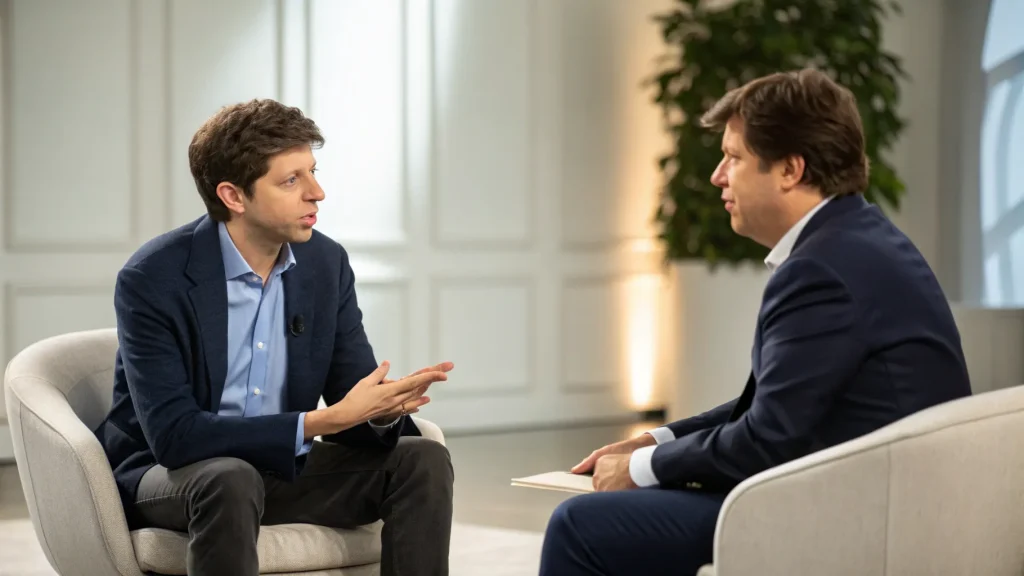OpenAI CEO Sam Altman recently sat down with Tucker Carlson for a wide-ranging interview that explored the moral and ethical dimensions of artificial intelligence development. During their conversation, Altman responded to numerous questions about his company’s approach to AI ethics and the implications of their popular chatbot technology.
The interview comes at a time when AI systems like ChatGPT are facing increased scrutiny from regulators, ethicists, and the public. As these technologies become more powerful and widespread, concerns about their potential impacts on society have grown more urgent.
Table of Contents
ToggleEthical Boundaries and Corporate Responsibility
Throughout the interview, Altman addressed how OpenAI approaches ethical boundaries in AI development. He discussed the company’s decision-making processes regarding what their AI systems should and shouldn’t be allowed to do.
“We have to make difficult choices about the capabilities we build into our systems,” Altman explained during the conversation. He emphasized that OpenAI attempts to balance innovation with responsibility.
Carlson pressed Altman on who ultimately decides these ethical guidelines and whether such power should rest with private companies. The discussion highlighted the complex interplay between corporate decision-making and public interest when it comes to transformative technologies.
AI Safety Concerns
Safety was another major topic in the interview. Altman acknowledged the legitimate concerns about AI systems potentially causing harm if deployed without proper safeguards.
When questioned about worst-case scenarios, Altman outlined some of the specific risks OpenAI works to mitigate:
- Potential for misuse by bad actors
- Systems that might act contrary to human values
- Economic and social disruption from rapid automation
“We invest heavily in safety research,” Altman stated. “Our goal is to build AI that’s aligned with human values and that benefits humanity broadly.”
“The technology itself is neutral. How it gets used and the guardrails we put in place make all the difference.”
Future of AI Governance
The interview also explored how AI systems like those developed by OpenAI should be governed going forward. Altman shared his thoughts on the role of government regulation versus industry self-regulation.
Carlson challenged Altman on whether OpenAI’s approach gives too much control to a small group of technologists. In response, Altman acknowledged the need for broader input while defending the expertise required to make technical safety decisions.
The conversation touched on international dimensions as well, with both men discussing how different countries might take varying approaches to AI regulation and development.
Public Perception and Transparency
Altman addressed questions about public perception of AI and how OpenAI communicates about its technology. He spoke about the company’s efforts to be transparent about capabilities and limitations.
“We want people to understand what these systems can and cannot do,” Altman said. “Hype and fear can both be harmful to having a productive conversation about the technology.”
The interview revealed tensions between OpenAI’s commercial interests and its stated mission of ensuring artificial general intelligence benefits all of humanity. Carlson questioned whether these goals could truly coexist within a for-profit structure.
As AI continues to advance rapidly, the conversation between Altman and Carlson highlights the growing importance of ethical considerations in technology development. The interview offers a glimpse into how one of the leading AI companies approaches these complex questions, while leaving many observers still debating whether current governance structures are sufficient for the challenges ahead.















